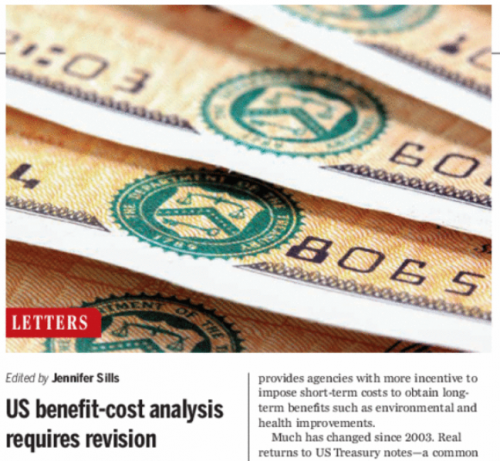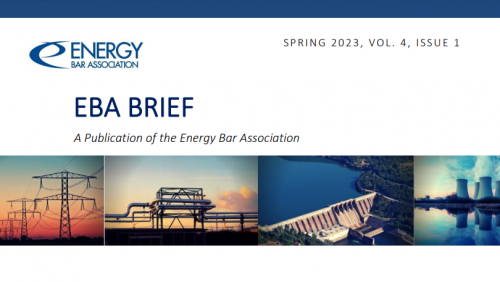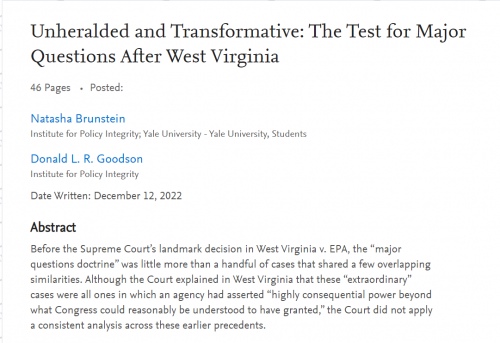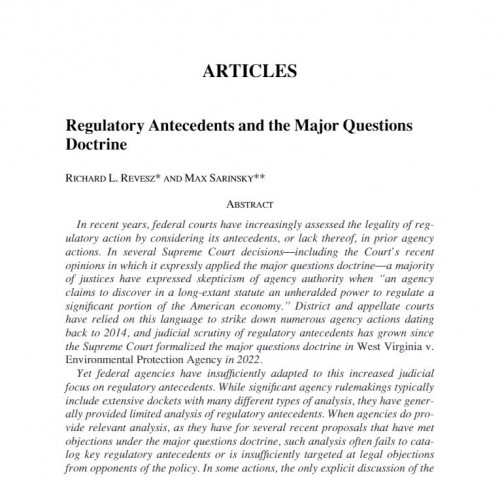-
Major Rules in the Courts
An Empirical Study of Challenges to Federal Agencies’ Major Rules
This working paper summarizes the first empirical study of how major rules, as defined under the Congressional Review Act (CRA), fare in federal court. The study covers each of the 1,870 major rules issued from the CRA’s enactment in 1996 through the end of the Trump Administration. The roughly 24-year period covering four administrations (two from each party) is the longest continuous timespan of any empirical study of agency win rates.
-
Regulatory Antecedents and the Major Questions Doctrine
Published in the Georgetown Environmental Law Review
In recent years, federal courts have increasingly assessed the legality of regulatory action by considering its antecedents, or lack thereof, in prior agency actions. Yet as this article explains, federal agencies have insufficiently adapted to this increased judicial focus on regulatory antecedents. While significant agency rulemakings typically include extensive dockets with many different types of analysis, they have generally provided limited analysis of regulatory antecedents. This article suggests that agencies more extensively catalog regulatory antecedents at all stages of the rulemaking process, from drafting to promulgation.
-

US Benefit-Cost Analysis Requires Revision
Letter in SCIENCE Supporting Proposed Adjustment to Discount Rates in Circular A-4
A critical input in cost-benefit analysis is the discount rate, which determines how much impacts in the future are weighted relative to impacts in the present. Federal guidance currently calls on U.S. agencies to apply discount rates of 3% and 7%. But these rates, particularly the 7% rate, substantially devalue impacts that accrue to future generations, thus putting a thumb on the scale against policies that provide long-term benefits such as environmental and public-health regulation. In April, the Office of Management and Budget (OMB) proposed a comprehensive update to that guidance document, known as Circular A-4. Among other revisions, the draft would update the default discount rate used in federal regulatory analysis to 1.7%. In a letter published in Science, leading global experts on discount rates and cost-benefit analysis support the proposed revision.
-

The Impact of West Virginia v. EPA on Challenges to FERC’s Authority Under the Major Questions Doctrine
Published in Energy Bar Association Brief
The Supreme Court’s recent applications of the major questions doctrine have prompted numerous challenges to pending or proposed regulatory actions, including the Federal Energy Regulatory Commission’s (FERC’s) proposed revisions to Order No. 1000’s regional transmission-planning and cost-allocation rules (Transmission Rulemaking) and updated draft policy statements on certification of new interstate natural gas facilities (Draft Policy Statements). This article addresses the impact of West Virginia v. EPA—the most recent Supreme Court case involving the major questions doctrine—on FERC’s regulatory authority.
-

Unheralded and Transformative: The Test for Major Questions After West Virginia
Published in William and Mary Environmental Law and Policy Review
In West Virginia v. EPA, the Supreme Court expressly relied on the “major questions doctrine” for the first time in a majority opinion to hold that a federal agency lacked authority to issue a regulation. Published in the William and Mary Environmental Law and Policy Review, this paper explores whether West Virginia provides such a framework and concludes that it does. A close look at West Virginia and the alternative frameworks that parties and others urged on the Court in the West Virginia litigation also reveals a great deal about what the major questions doctrine is not.
Viewing all publications in Government Transparency

